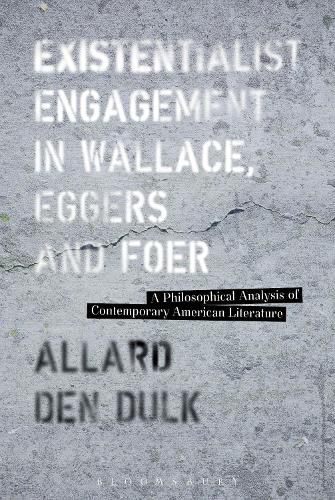Readings Newsletter
Become a Readings Member to make your shopping experience even easier.
Sign in or sign up for free!
You’re not far away from qualifying for FREE standard shipping within Australia
You’ve qualified for FREE standard shipping within Australia
The cart is loading…






The novels of David Foster Wallace, Dave Eggers and Jonathan Safran Foer are increasingly regarded as representing a new trend, an ‘aesthetic sea change’ in contemporary American literature. ‘Post-postmodernism’ and ‘New Sincerity’ are just two of the labels that have been attached to this trend. But what do these labels mean? What characterizes and connects these novels?
Den Dulk shows that the connection between these works lies in their shared philosophical dimension. On the one hand, they portray excessive self-reflection and endless irony as the two main problems of contemporary Western life. On the other hand, the novels embody an attempt to overcome these problems: sincerity, reality-commitment and community are portrayed as the virtues needed to achieve a meaningful life.
This shared philosophical dimension is analyzed by viewing the novels in light of the existentialist philosophies of Soren Kierkegaard, Jean-Paul Sartre, Ludwig Wittgenstein and Albert Camus.
$9.00 standard shipping within Australia
FREE standard shipping within Australia for orders over $100.00
Express & International shipping calculated at checkout
The novels of David Foster Wallace, Dave Eggers and Jonathan Safran Foer are increasingly regarded as representing a new trend, an ‘aesthetic sea change’ in contemporary American literature. ‘Post-postmodernism’ and ‘New Sincerity’ are just two of the labels that have been attached to this trend. But what do these labels mean? What characterizes and connects these novels?
Den Dulk shows that the connection between these works lies in their shared philosophical dimension. On the one hand, they portray excessive self-reflection and endless irony as the two main problems of contemporary Western life. On the other hand, the novels embody an attempt to overcome these problems: sincerity, reality-commitment and community are portrayed as the virtues needed to achieve a meaningful life.
This shared philosophical dimension is analyzed by viewing the novels in light of the existentialist philosophies of Soren Kierkegaard, Jean-Paul Sartre, Ludwig Wittgenstein and Albert Camus.